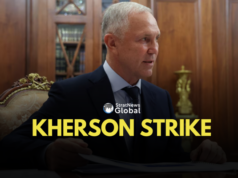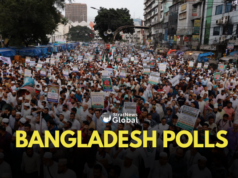“Like other countries, there are many strings to India’s bow, and External Affairs Minister Jaishankar’s visit to Islamabad for the SCO (Shanghai Cooperation Organisation) Summit on Oct 15th, signals the value this country attaches to that grouping,” a senior former diplomat told Stratnewsglobal.
If the US could issue a report taking aim at India over religious freedom ahead of Jaishankar’s visit to Washington DC, or an American district court issue a notice of summons on NSA Ajit Doval ahead of Modi’s visit, India is not without options.
In his view, Prime Minister Modi’s visit to Kazan, Russia for the BRICS Summit later this month, must be seen in a similar light.
“India is not ‘hook, line and sinker’ in the American embrace and retains the freedom to manoeuvre in pursuit of its national interests, just like other countries do,” he said.
Islamabad will be an opportunity to meet China’s Foreign Minister Wang Yi and exchange notes on the SCO and also BRICS.
There’s been speculation about a Modi-Xi Jinping bilateral on the sidelines of the BRICS summit. Hints that a major push at the political level could see an India-China disengagement at the two remaining friction points of Depsang and Demchok in Ladakh.
There are also indications that India maybe willing to relax some of its curbs on imports and possibly investments from China in areas deemed “non-strategic”, such as battery manufacturing and solar panels.
Does the Islamabad summit offer scope for any major bilateral initiative with Pakistan? It’s hard to say, more so given the lack of any conciliatory signals from the other side.
Ajay Bisaria, former high commissioner to Pakistan, says “The ball is firmly in Pakistan’s court. By sending Jaishankar to the SCO meeting, India has signalled its desire to stabilize this troubled relationship. Pakistan must propose a meaningful bilateral conversation on the SCO sidelines.”
In his view, there are some “low-hanging fruit” the two countries could capitalise on, such as exchanging high commissioners and reviving trade ties.
Important to note that the ceasefire agreed upon since Feb. 2021 has largely held and has been renewed for a further three years.
According to a report by the ORF think tank, there were 5,133 ceasefire violations in 2020, the highest since 2003. The numbers declined to 670 in 2021, possibly in the lead-up to the economic crisis which bankrupted the country in 2022.
Thirty eight years in journalism, widely travelled, history buff with a preference for Old Monk Rum. Current interest/focus spans China, Technology and Trade. Recent reads: Steven Colls Directorate S and Alexander Frater's Chasing the Monsoon. Netflix/Prime video junkie. Loves animal videos on Facebook. Reluctant tweeter.




